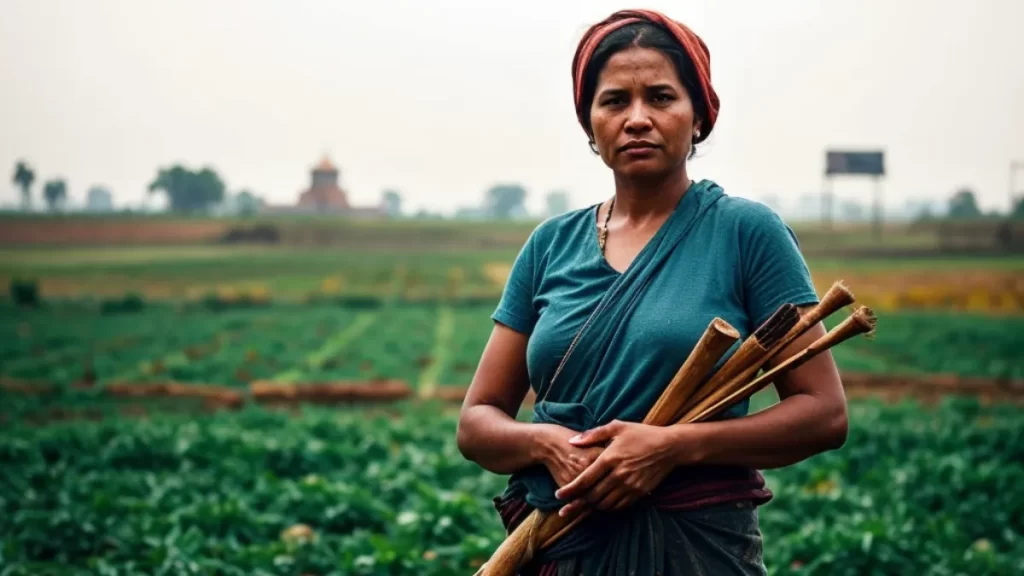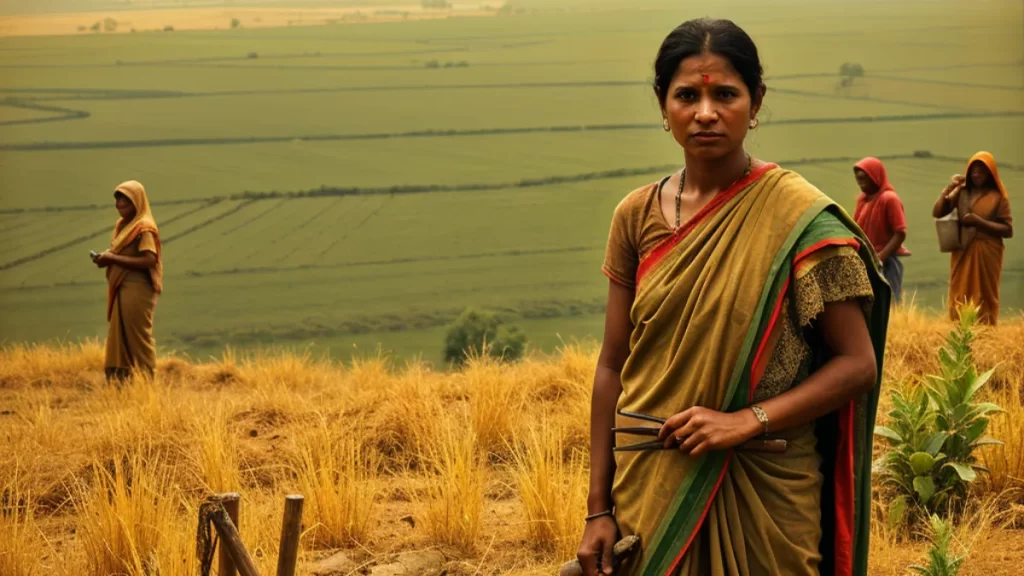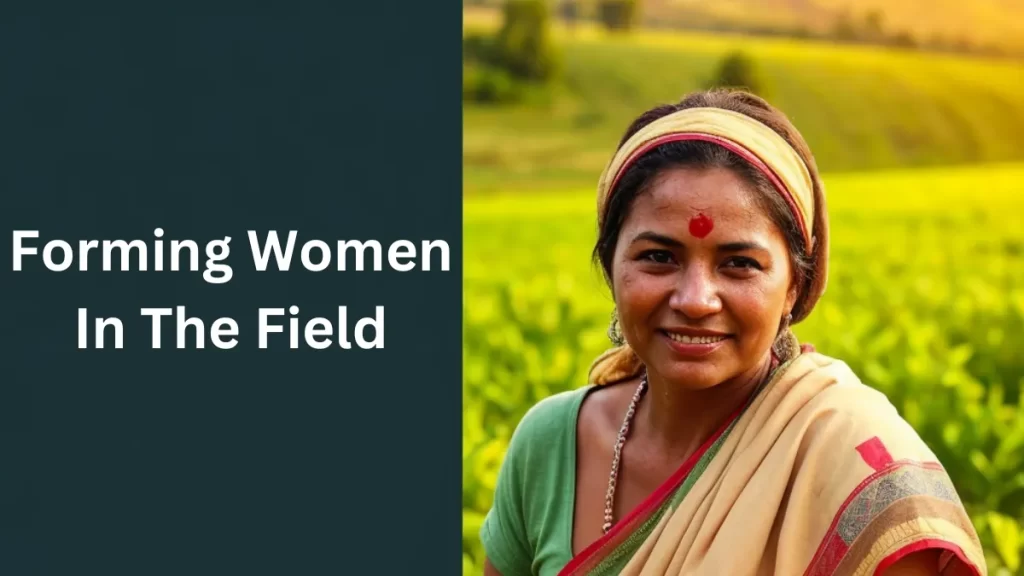Woman Role in FPO Tomorrow, we celebrate rural women worldwide as vital contributors to food and nutrition security. This recognition is essential, but one day isn’t enough. These women need ongoing support through effective policies and resources. The first step is to acknowledge them as farmers.
The Role of Women in Agriculture
Growing a large portion of the food for their families and communities, women account for over 40% of the agricultural labor force worldwide. As men migrate from rural areas to cities, women’s roles on the farm have expanded, leading to the Women’s Role in FPO of agriculture in many countries.
Despite their significant contributions, Woman Role in FPO are often viewed as laborers rather than independent farmers needing support. This perception contributes to the persistent gender agricultural productivity gap.
Challenges in Guatemala

A recent study in Guatemala found that most rural households remained engaged in agriculture even after the male head of the household migrated. Women took on more responsibilities in farm decision-making and cultivation but had limited access to external support.
However, households led by Woman Role in FPO farmers had the highest levels of food security and food diversity, highlighting their crucial role in achieving food security and nutrition.
Barriers to Resources
Many woman Roles in FPO farmers lack access to productive resources such as inputs, training, and finance because they don’t have secure, documented land rights. Without land, they can’t leverage collateral for formal finance and are often excluded from government programs that support farmers. This lack of documented land rights keeps women farmers ‘invisible’ and limits their productivity.
The Food and Agriculture Organization of the United Nations indicates that improving women’s access to productive resources could boost their food production by 20-30%. This improvement would positively impact children’s nutrition, health, and education and could increase national agricultural outputs by up to 4%.
In Africa, studies show that the gender productivity gap ranges from 13% in Uganda to 25% in Malawi, partly because women lack secure land tenure and have less access to education, information, and markets.
Access to Land Woman Role in FPO

In rural places, official and informal hurdles prevent women from acquiring and owning land. In many countries, few land rights are registered, and women’s land rights are the least secure.
For example, women represent only 13.9% of all recorded landholders in India despite making up 65% of the agricultural workforce. This is troubling, as many public and private agricultural services in India identify farmers based on land records. While women farmers in India are increasingly empowered through collectivization, accessing and owning land remains difficult.
Women Role in FPO, without land records can’t access competitive loan rates and are excluded from leadership roles in farmer-producer organizations.
Control over assets, especially land, improves not just a woman’s well-being but also that of her family and community. The research included in the 2012 World Development Report on Gender Equality demonstrates that improved land control results in improved child nutrition and food security.
In Ghana, the share of land owned by Woman Role in FPO is linked to higher food expenditures among rural households. In Nepal, fewer children are severely underweight in households where mothers have greater ownership of land.
Also Read: Who Is the Fastest Person in the World? Discover Bolt’s Secret
Supporting Women Farmers
Development programs often fail to benefit women adequately by setting beneficiary targets without addressing their constraints, such as mobility, land ownership, and household responsibilities.
Another obstacle is the worldwide dearth of disaggregated data on the percentage of people in the agricultural labor force and secure land tenure. Without securing women’s access to land and monitoring their land rights and access to other resources, countries can’t build effective programs and policies that benefit these ‘invisible farmers.
The COVID-19 emergency has highlighted these issues. Some emergency relief programs couldn’t reach Woman Role in FPO farmers because they weren’t registered as farmers or landowners. Efforts are needed to prevent reversing the gains women have made in the agriculture sector due to the pandemic.
Building a Better Future

Building a better future means addressing the root causes of the gender productivity gap, especially access to secure land rights, inputs, and extension services.
We need to see women in agriculture as farmers and support them in gaining secure land rights. Currently, more than 20 World Bank land initiatives employ creative strategies to expand women’s access to housing, land, and property.
The IDA 19 has committed to ensuring that World Bank-financed land projects improve Woman Role in FPO tenure security.
Until women are recognized as farmers and have secure, documented land rights, they will continue to face difficulties accessing other productive inputs or fully investing in their land.
Making women farmers visible and removing institutional barriers should be the cornerstone of building a stronger rural sector, ensuring all farmers can emerge from this crisis stronger than ever.
Closing Thoughts
The Woman Role in FPO is fundamental to transforming rural agriculture. Women’s participation in FPOs leads to economic empowerment, enhanced productivity, and improved community welfare.
Addressing the challenges women face and implementing strategies to support their involvement can significantly impact rural farming communities. Recognizing and supporting women as integral members of FPOs is key to achieving sustainable agricultural development.
FAQs:
What is the significance of women’s roles in FPOs?
Women bring unique perspectives, promote inclusivity, and enhance decision-making in FPOs, leading to sustainable agricultural practices.
How can women contribute to FPO leadership?
Women can contribute by taking on leadership roles, bringing diverse ideas, and ensuring the inclusion of women’s issues in decision-making.
What challenges do women face in FPOs?
Women often face challenges like limited access to resources, training, and societal barriers that hinder their full participation.




